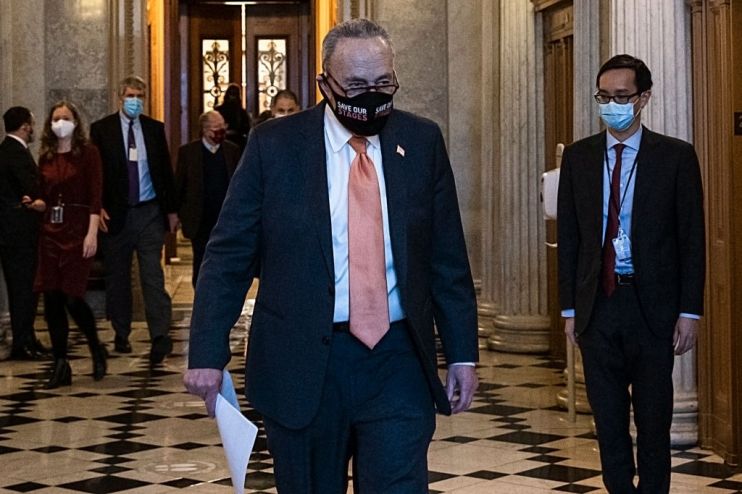US lawmakers poised to vote on $900bn stimulus package

US lawmakers could vote on a $900bn (£665bn) stimulus package as early as today after Republicans and Democrats reportedly reached a compromise on Federal Reserve lending programmes.
If Congress fails to act, much of the support aimed at the unemployed so far will expire. Other stimulus programmes are due to come to an end before the end of the year.
Talks had been held up by demands from Republican senator Pat Toomey that certain Federal Reserve lending programmes should not be extended.
The two sides have reportedly come to a compromise, however, that will not allow carbon copies of previous Fed programmes for businesses and states to be created.
Senate Democratic leader Chuck Schumer told reporters on Saturday night: “If things continue on this path and nothing gets in the way, we’ll be able to vote tomorrow.”
President Donald Trump urged Congress to sign off on a deal. “GET IT DONE, and give them more money in direct payments,” Trump tweeted.
Light at end of stimulus tunnel
Economists and investors have long called for extra stimulus. But negotiations stalled ahead of the presidential election, with the Democrats demanding a much bigger package than Republicans.
More recently, the Fed’s role in stimulus efforts became a major sticking point. Toomey and other Republicans object to what they see as overreach by the central bank.
Republicans and Democrats have reportedly reached a compromise on the Fed schemes. The New York Times reported that president-elect Joe Biden’s Treasury secretary would not be allowed to create carbon copies of the previous schemes, but there would be some leeway for more Fed support.
The compromise bill would send direct payments of $600 to large numbers of Americans. It would also boost unemployment support.
A stimulus bill would cheer markets, which have been pulled in different directions by vaccine optimism and rising coronavirus cases.
Signs that the US economic recovery is slowing has worried businesses and households. New claims for unemployment insurance have risen for two weeks in a row, spurring Congress to act.